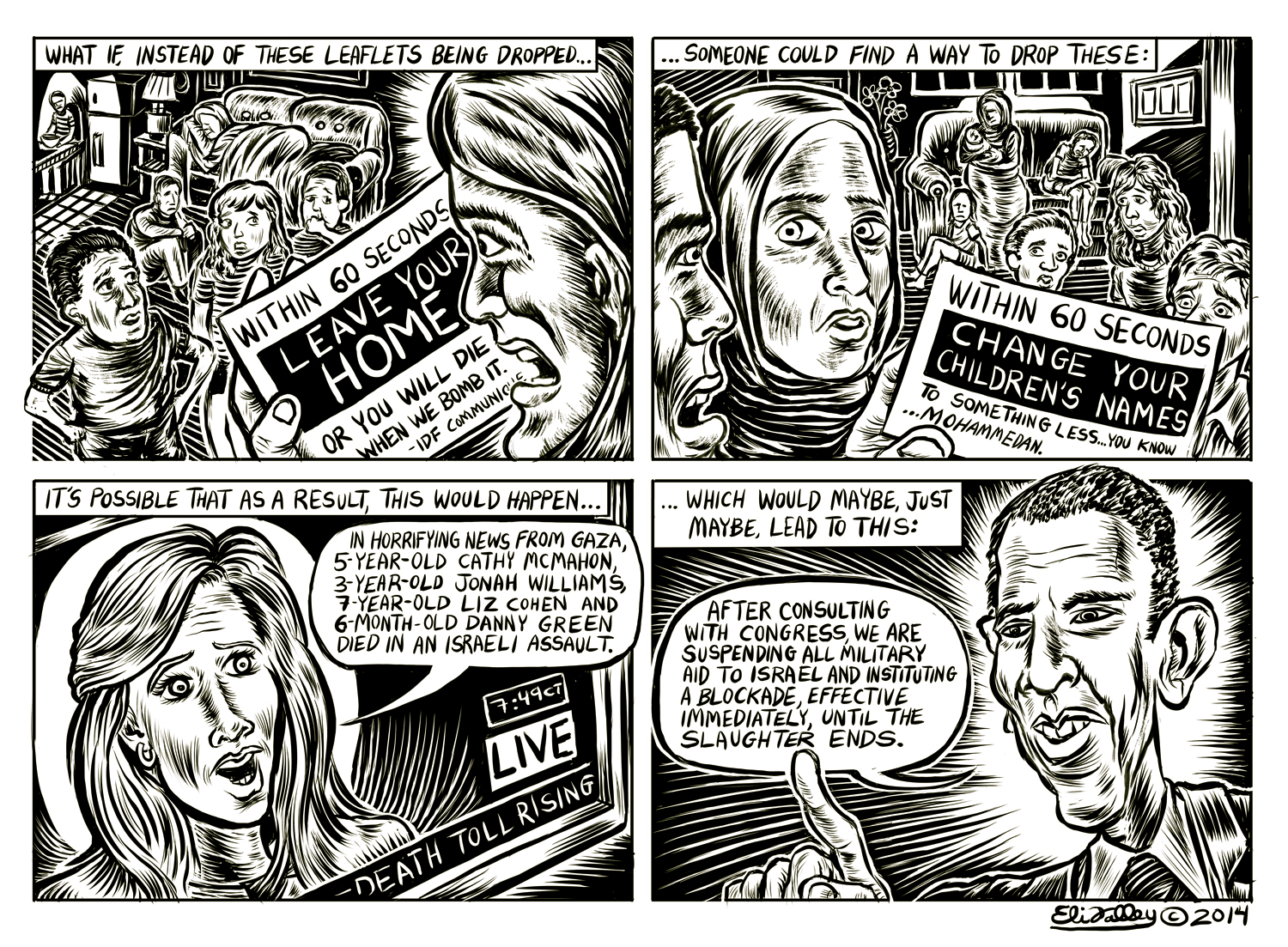
Comix Nation Comix Nation
Jul 30, 2014 / Eli Valley
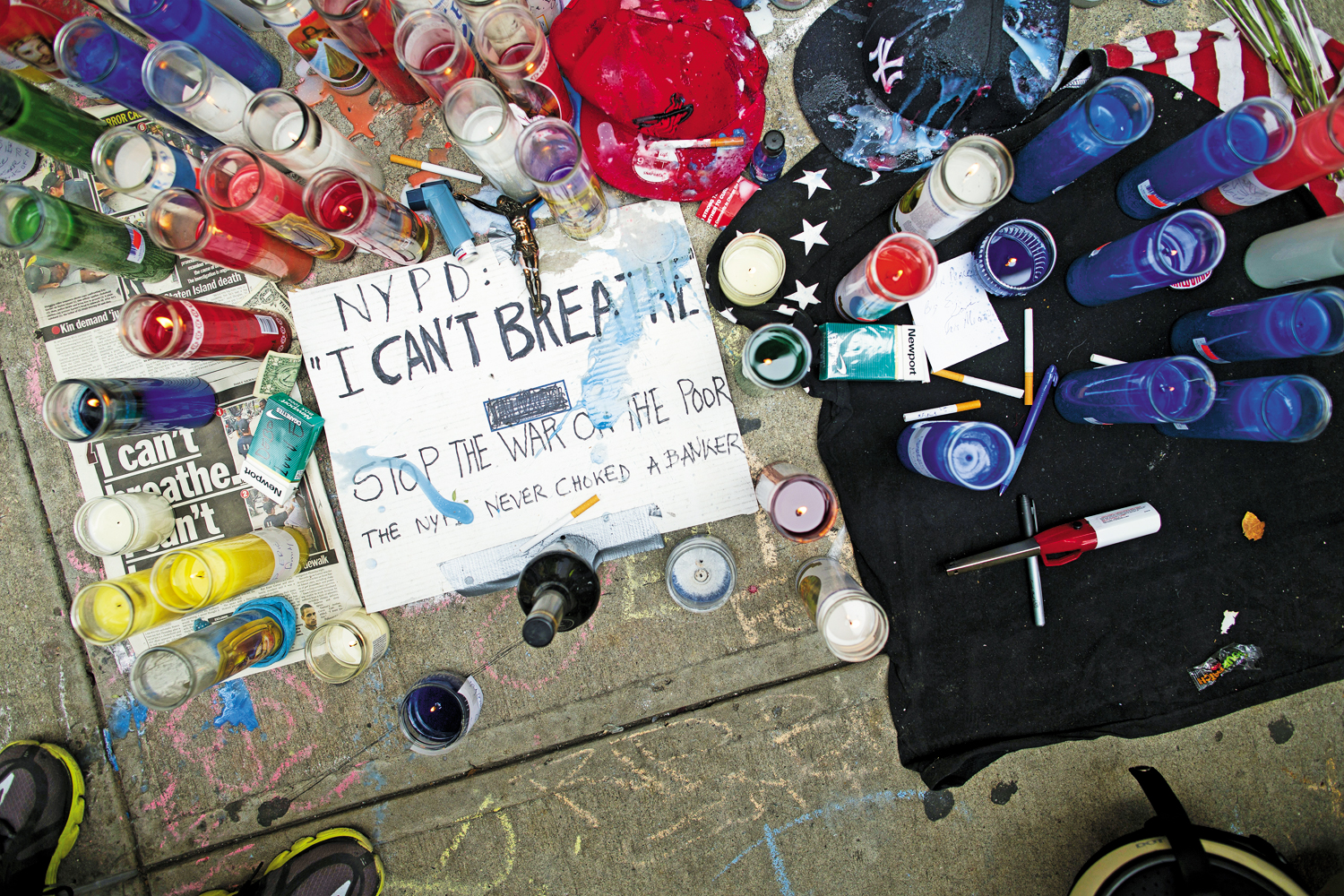
Snapshot: A Suffocating Silence Snapshot: A Suffocating Silence
“I can’t breathe!” were among the last words of Eric Garner, a Staten Island father of six. On July 17, Garner was choked by police arresting him for selling untaxed cigarettes. The city insists it’s out to stop racist policing, but as Mychal Denzel Smith notes at TheNation.com, NYPD Commissioner Bill Bratton doesn’t believe “race was a factor.”
Jul 30, 2014 / John Minchillo

The War on Gaza and the Cycle of Impunity The War on Gaza and the Cycle of Impunity
If Israel is not brought to justice, it will commit the same crimes again and again.
Jul 16, 2014 / The Editors

Yes, Mr. President, the Border Kids Are Refugees Yes, Mr. President, the Border Kids Are Refugees
The 52,000 unaccompanied children who have shown up at the border are fleeing gang violence and have valid claims to asylum.
Jul 16, 2014 / Michelle Goldberg

When Will the Justice Department Take On Amazon? When Will the Justice Department Take On Amazon?
As the online behemoth strengthens its monopoly over the marketplace, publishers, like bookstores, are in a fight for survival.
Jul 16, 2014 / Steve Wasserman
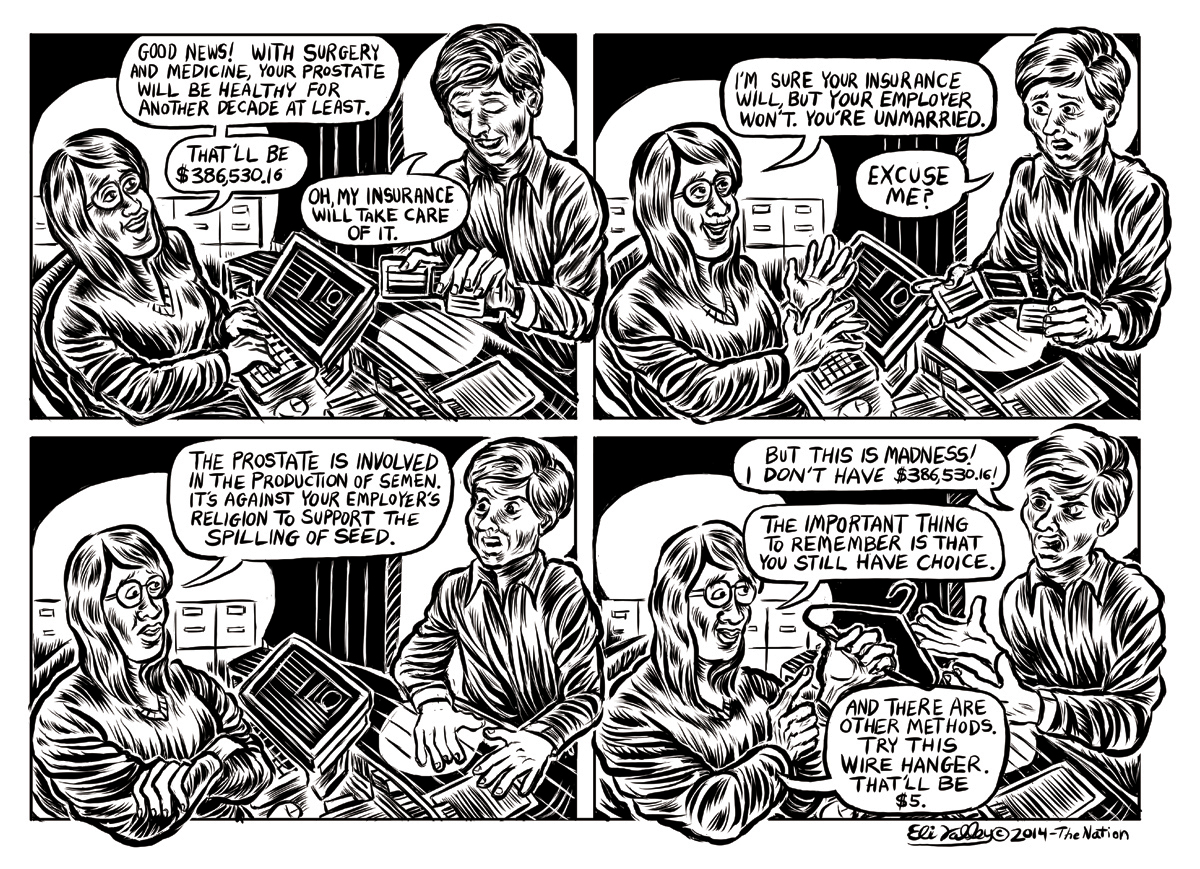
Comix Nation Comix Nation
Jul 15, 2014 / Eli Valley
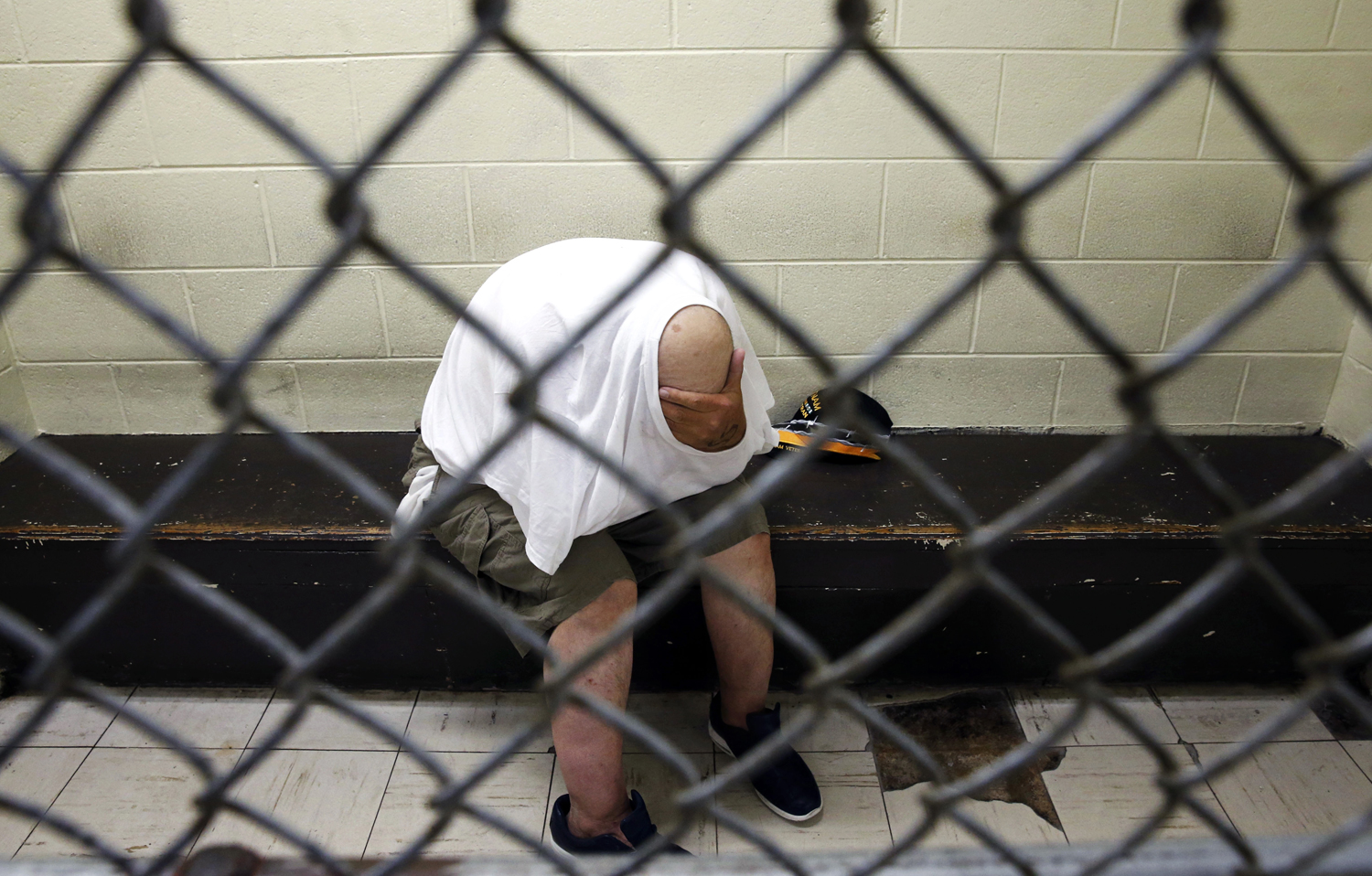
Snapshot: The Prisoner Snapshot: The Prisoner
A veteran with PTSD sits in a holding cell in Illinois’s Cook County Jail after being arrested on a narcotics charge. With over 10,600 inmates, the jail is one of the country’s largest incarceration facilities. These local jails are increasingly being used as treatment centers for nonviolent offenders with serious mental illnesses.
Jul 15, 2014 / Charles Rex Arbogast
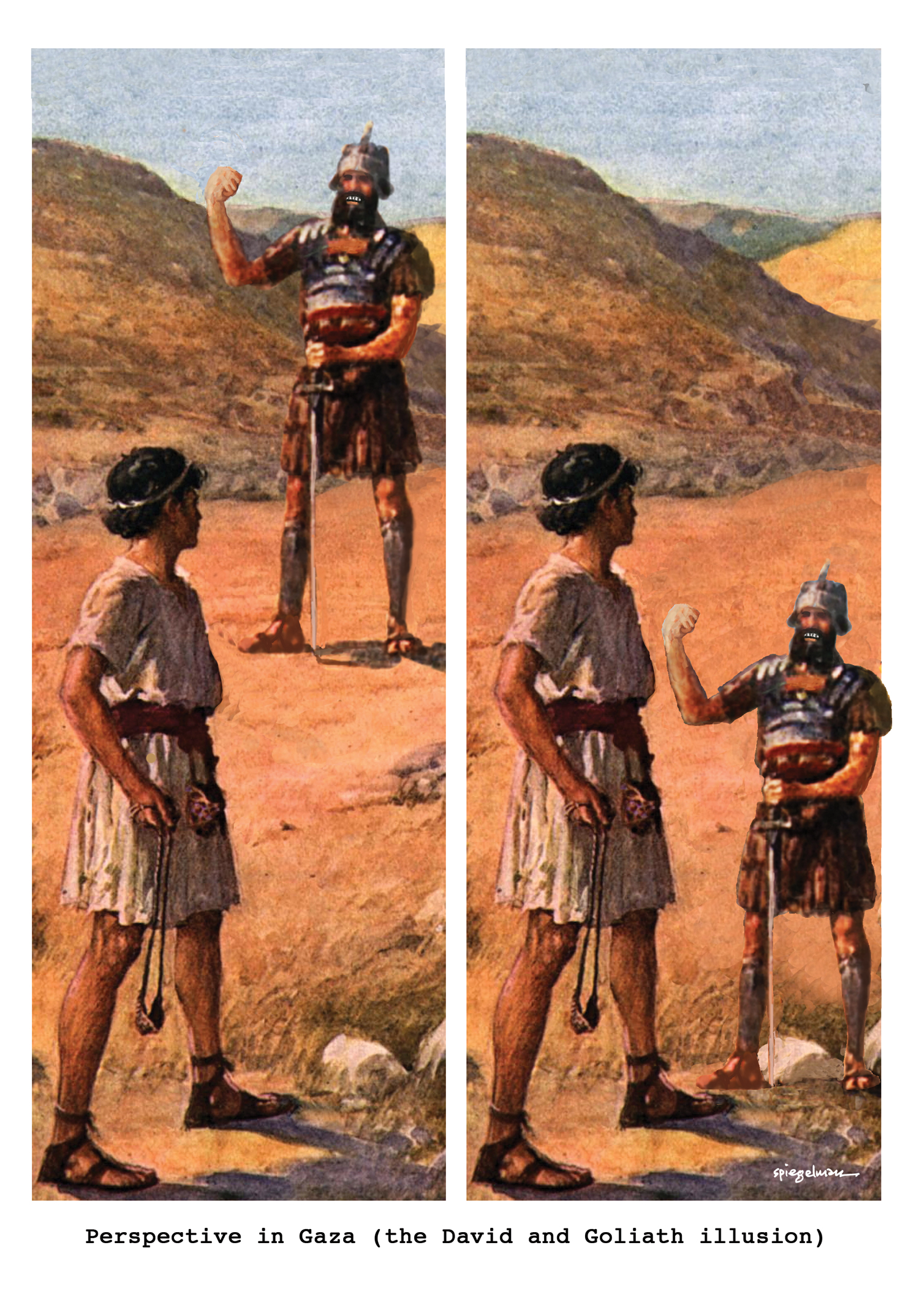
Comix Nation Comix Nation
Jul 13, 2014 / Art Spiegelman

Snapshot: Prelude to a Police Riot Snapshot: Prelude to a Police Riot
Ferguson, Missouri
Jul 13, 2014

50 Years After Freedom Summer, America Needs a Revived Movement for Racial Justice 50 Years After Freedom Summer, America Needs a Revived Movement for Racial Justice
There is much to celebrate in Mississippi, and yet America still needs a year of action on voting rights.
Jul 2, 2014 / The Editors
